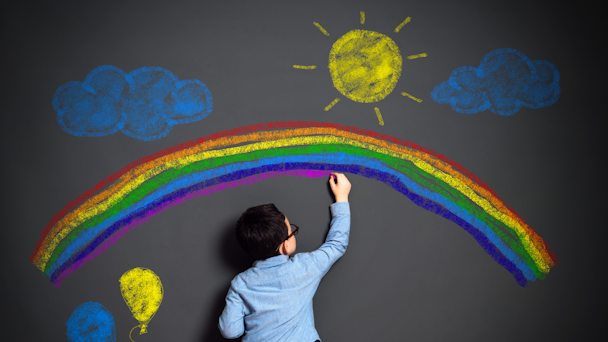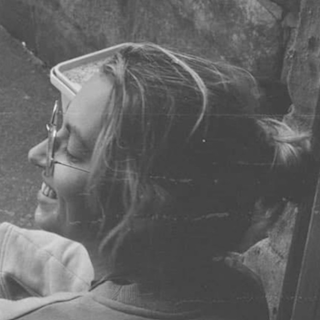Surprise! With that childhood trauma you are perfect for a job in advertising
Could a lousy childhood make you more creative? CD Livvy Moore shares her minor silver lining.

I’ve often joked that those who grew up with an idyllic childhood make for the most excruciatingly boring adults.
While perhaps that’s a tad unfair, I’ve noticed that the most dynamic in our industry seem to have this trait in common –and though I wouldn’t wish my childhood on anybody, there’s certainly a silver lining to it. The parts of my personality that have made me a successful creative director are the very characteristics that were born from my trauma.
We can read emotions
When you spend your childhood around violence, you get really good at reading the room. I developed a ‘sixth sense’ that allowed me to be super tuned in to how others were feeling, likely as a defense mechanism to be able to react to danger faster. In record time, I’d be able to work out what someone wanted or needed and what triggered or motivated them.
Explore frequently asked questions
Throughout my career, I’ve found that this skill can be repurposed. While I no longer need to understand human emotion to keep me from danger, I do need to understand it when building a creative strategy. The part of me that could anticipate my parent’s next move is the same part that allows me to anticipate consumer trends.
We understand escapism
There are parts of my childhood that you wouldn’t want to read about. While those parts were happening, my brain would disassociate and create new worlds to escape.
In the creative industry, we’re surrounded by noise. So many of us cannot drown it out – and it shows in our ideas. We create concepts and craft campaigns based on how we think they’ll be received, leaving a shocking amount of the work that our industry produces completely unoriginal.
Advertisement
But for those of us who had to escape when we were young, we simultaneously learned how to dream. We learned how to tap into our own imaginations and how to make those ideas more powerful than the noise around us. I escape back to this same part of my brain with every pitch I create.
We rely on humor
Throughout my life, I’ve found that humor is the best defense mechanism I have – and many who have experienced childhood trauma feel the same way.
When we’re funny, no one asks us about what’s going on at home or judges us for being different. Ultimately, humor is a way to connect with people, irrespective of what you do or don’t have in common.
Advertisement
It’s one of my deepest beliefs that advertising is just the art form of understanding humanity, and humor is one of the most powerful human connectors out there. The same quick wit that I’ve utilized to deflect from my pan is the same one I inject into the copy I write for brands.
We are control freaks
No matter what kind of trauma you experienced as a child, we all have one thing in common – we never had any control over it.
So, it’s not all that surprising that in adulthood, many of us tend to overcompensate for it. We try to control elements of our lives as a subconscious way to make amends and take back our own power.
Suggested newsletters for you
In advertising, this can be a superpower. I’ve found that it’s made my attention to detail unrivaled and my ability to see a project through from start to finish unwavering. These attributes enable me to problem-solve with ease, which in our industry is vital no matter your role.
We can’t help but empathize
As adults, we are somewhat hardened to the world, and our view of it can oftentimes be rigid. But, as children, we still have that part of us that can’t help but see the good in even the worst.
If, like me, you experienced trauma – chances are you tried to understand those that caused you pain, perhaps even fix them, and most certainly attempted to empathize with them. Because without empathy, there’s no hope for change. And without hope – there’s nothing.
This empathy that we learned so young stays with us, and when we embrace it, it’s our ultimate superpower. It bleeds into every interaction we have, from Zoom meetings to board meetings to beyond. It’s the mark of a true leader.
Whether you’re just starting out in the industry or are a seasoned professional – know that your past doesn’t define you, and if you let it, it can be the thing that fuels you instead.
If you enjoyed this, you’ll probably dig Vox Media’s AJ Gutierrez’s take on creativity: An insane guide to being a creative: find your crazy eye, be honest, find the freaks
